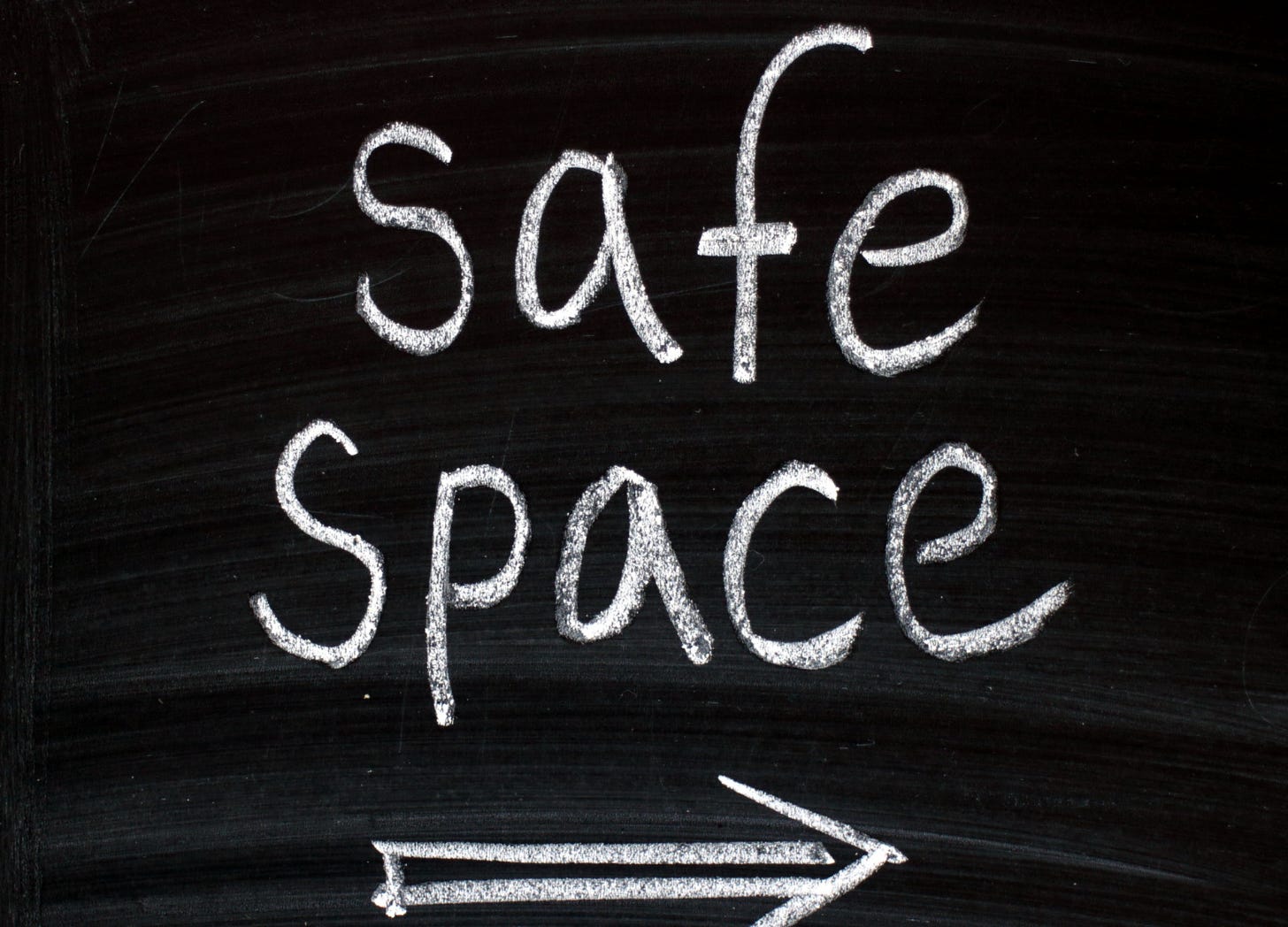Embracing Discomfort: A Journey Towards Universal Humanism
"We all live under each other's gaze."
A week before the controversy surrounding the Blackout theatre nights for Slave Play in London's West End emerged, I remember attending a large, formal event – a day-long funeral – where I found myself in multiple minority groups.
For instance, I was one of only ten individuals with “white skin” among approximately four hundred attendees of Afro-Caribbean descent. I was mainly so worried about not wearing the right funeral clothes or behaving in the right way that I had an at-home dress rehearsal and talked to myself the night before.
In one sense, I naturally felt uncomfortable, but in another, I was simply in a heightened state of awareness, acutely conscious of my surroundings and actions.
It was very good to be there for many reasons, and afterwards I realised that this sense of discomfort - at a new situation or a challenge - was a familiar part of my life.
I was born into a working-class family in Lincolnshire but went on to study at Oxford and work in both Germany and Italy. In my UK career, I interacted with a diverse range of people, from millionaires, artists, and royalty to waiters, nurses, factory cleaners, and lathe operators.
My go-to preparation for a new experience was always to get the right clothes to fit in, to model myself on others, and to "get over the bump in the road," as I called it, which always appears when you meet someone new with different experiences, ways, and views.
When Inaya Folarin Iman discussed the topic of the “Black Out Theatre” on Radio 4’s Antisocial, I remember being very frustrated that the other speaker, and even the presenter, seemed to give insufficient importance to a key fact about everyone’s life: it’s packed with discomfort.
Indeed, such discomfort is an inescapable and essential part of life, and trying to hide from it makes us easy prey for those who want to recruit us to their movements, religion or worldviews.
Groups are categories and are very useful, but I prefer to make the political-philosophical choice to give greater weight to the individual.
In the programme, which is well worth listening to, there was discussion of the term "white gaze," and for a moment I feared we'd descend to Foucault and the Panopticon Prison.
Luckily not, but we still dallied in a world where people were encouraged to be part of one particular identity—let's call it "black," though any identity would do—as a refuge, somewhere authentic and safe.
I would like to argue that while we're all entitled to be free from physical assault, racism, discrimination, or bullying, there could still be benefits in accepting and embracing discomfort.
In part, I take this from biology: creatures are clearly chased around the reef and evolve in response to discomfort and threat. Any active life involves stress.
My suggestion is that, setting aside threats, we embrace interpersonal discomfort.
We could also usefully challenge the idea of race, not because pigment and other discrimination-driving differences don't exist, but because, viewed from a broader perspective, Homo sapiens (one species) has for the last 500 years been on a journey to remix its various continent-based subsets.
Some of that remixing has, of course, been extraordinarily painful and exploitative. However, in the present day, this ongoing exchange of genetic material and life experiences is eroding the distinctiveness of continental origins and the accompanying traits traditionally associated with them.
Now people from everywhere exist everywhere—all at once, as they say. While we all retain bits and pieces of our continent of origin, more and more of us are no longer anchored there. Or don't need to be.
So, I thought of a few new coinages to support this universal humanism approach, such as terms like "secondary story" and "de-continentalisation".
I see them as ways to nudge at and perhaps destabilise words like "race."
For instance, instead of asking about someone's race, why not make it normal to inquire, "What is your secondary story?" in the same casual way you might ask where someone works or where their kids go to school?
By using "secondary story," I am provocatively suggesting that while we may have differences rooted in our continental origins, these are not our primary identifiers. Our ancestral ties are secondary to our primary identity as human beings.
The term "de-continentalisation" represents a resistance to those who attempt to re-categorise and divide us based solely on physical traits like skin colour that are associated with particular continental ancestries.
(For more on this, take a look at Aldri Anunciação 's play "Namibia Nao" and the film "Provisional Measures").
Of course, what I'm suggesting is intentionally heavy-handed and hardly a philosophy to live by, but I am trying to find tools with which the Universalists can fight those who want us to hide in groups.
The core idea is for us to embrace discomfort and vulnerability rather than seeking insulation and 'safe spaces,' especially in today's world where the idea of safety can sometimes be twisted into harmful extremes.
We are more resilient, forgiving, and resourceful than constantly avoiding anything that makes us uncomfortable. Deep down, we understand that genuine human connection often involves some friction, discomfort, and unexpected challenges along the way.
We all live under each other's gaze.
Written by Greg Williams, a journalist, writer, adviser and parent.





Insightful and I imagine heartfelt piece of writing .... Thank you